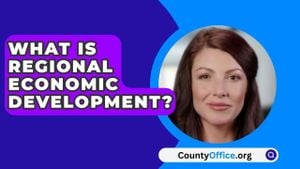South Korea has recently found itself at the center of international attention as President Yoon Suk Yeol announced the declaration of emergency martial law amid rising political tensions and persistent opposition from rival parties. The move came during what has been characterized as the most contentious period of Yoon's short presidential term, reflecting deep divides within the nation and the political maneuvering surrounding it.
Yoon's proclamation was made in front of cameras from the Blue House, where he described the declaration as necessary to combat what he characterized as "anti-state forces". During the televised briefing, he emphasized his commitment to preventing these forces from undermining citizens' freedom and happiness. "I will wipe out anti-state forces as soon as possible and normalize the country's operation," Yoon stated, trying to alleviate fears among anxious citizens.
While this martial law is ostensibly aimed at stabilizing the political climate, it has raised eyebrows among political observers who see it as primarily targeting the opposition-controlled parliament led by the Democratic Party. Yoon’s administration has accused this party of exacerbated political gridlock, leading to frustrations within his ruling conservative bloc. "Their actions have led to chaos; we cannot allow this to continue," he argued.
The declaration of emergency has not come without controversy. Critics—who have been vocal on social media and through various protests—argue this is purely a tactic to suppress dissent and consolidate Yoon's grip on power. The fears of potential freedoms being curtailed echo alarmingly through the populace, reminiscent of South Korea's tumultuous past under previous authoritarian regimes.
Despite attempts to frame this declaration as necessary for the stability of South Korea, many citizens view it through the lens of historical experience, leading to protests erupting across various cities. Demonstrators have rallied under banners of democracy, calling for the government to respect civil liberties and legislative independence. This response serves as a poignant reminder of the struggles South Koreans have faced throughout their history, especially during the later 20th century when military rule was commonplace.
Yoon's presidency itself has been marked by controversy since he took office. His administration has faced significant scrutiny around various issues, from handling economic challenges to responses to North Korea's military threats. The martial law declaration seems to only add fuel to the fire, as opposition parties rally to bring attention to perceived government overreach.
The immediate political repercussions of declaring martial law have also prompted concerns internationally. The U.S. and other allied nations are watching closely, keeping the stability of the Korean Peninsula and their own geopolitical interests in mind. Experts suggest the declaration could complicate already tense relations, particularly as North Korean leader Kim Jong-un could use the situation to increase provocations, pressing for advantages on the international stage.
Interestingly, Yoon’s background may also illuminate his approach to the current turmoil. An ex-prosecutor known for his tough-on-crime stance, Yoon rose to prominence through high-profile corruption investigations against corporate leaders and politicians. This reputation perhaps underlines his decision, as such maneuvers may align with his view of maintaining strong authority against perceived threats.
Further complicity within this narrative emerges from the historical backdrop of South Korea, where martial law declarations have often elicited fear among citizens. The 1980s period of martial law, marked by mass protests and significant loss of life, looms large as both symbolic and directly impactful on contemporary political discourse. Citizens who value civil liberties are largely skeptical of Yoon's intentions, feeling the need to protect the progress made toward strengthening democracy over decades.
Yoon has so far defended his decision, citing the need for urgent action to combat the stagnation within the political framework. He aims to push past the stalemate with sweeping judicial reforms and increased direct governmental control—actions which will require careful handling to avoid spiraling back to the abuses observed history.
Yet, many argue this path could prove perilous. Various factions within the opposition are already crafting strategies to challenge the martial law declaration legally, setting up battles not just on the streets but also within the courts. Attorney groups and human rights organizations are preparing to contest the legitimacy of the president's claim to impose martial law.
This moment is poised at the intersection of law, civil rights, and political maneuvering. South Korea—often viewed as the beacon of democracy within Asia—faces substantial pressure to navigate this turbulent juncture without backsliding on its hard-won liberties. The outcomes bear considerable importance not just for the internal balance of power but also for broader regional stability.
Historically, emergency powers have led to significant civil unrest and outcomes never anticipated by those enforcing them. Observers must ponder the broader implications as South Korea faces potential internal conflict juxtaposed against the pressing external threats from North Korea, the balancing act requiring delicate handling to prevent exacerbation of either front.
Looking forward, Yoon's martial law declaration attempts to address immediate political gridlock, hinting at aggressive strategies to uplift his administration structurally. But the mixed reactions from the public coupled with the historical weight of prior martial law might mean the true battle lies not just with opposing sides politically, but deeply within the society itself. The nation holds its breath to see if this political chapter will demand resilience or if it will incite broader movements calling for democratic renewal.



